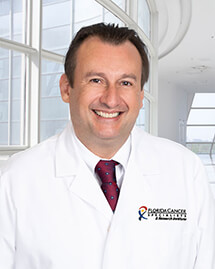Author(s): Lin Shen , MD, PhD1; Ken Kato , MD, PhD2; Sung-Bae Kim , MD, PhD3; Jaffer A. Ajani, MD, PhD4; Kuaile Zhao , MD5; Zhiyong He, MD6; Xinmin Yu, MD7; Yongqian Shu, MD8; Qi Luo, MD9; Jufeng Wang, MD, PhD10; Zhendong Chen, MD11; Zuoxing Niu, MD12; Longzhen Zhang, MD13; Tienan Yi, MD14; Jong-Mu Sun , MD, PhD15; Jianhua Chen, MD, PhD16; Guohua Yu, MD17; Chen-Yuan Lin , MD, PhD18; Hiroki Hara , MD19; Qing Bi, MD20; Taroh Satoh , MD21; Roberto Pazo-Cid , MD22; Hendrick-Tobias Arkenau , MD, PhD23; Christophe Borg, MD, PhD24; Florian Lordick, MD, PhD25; Liyun Li, MD26; Ningning Ding, MD26; Aiyang Tao, PhD26; Jingwen Shi , PhD26; and Eric Van Cutsem , MD, PhD27; for the RATIONALE-302 Investigators
PURPOSE
Patients with advanced or metastatic esophageal squamous cell carcinoma (ESCC) have poor prognosis. For these patients, treatment options are limited after first-line systemic therapy.
PATIENTS AND METHODS
In this open-label phase III clinical study, patients with advanced or metastatic ESCC, whose tumor progressed after first-line systemic treatment, were randomly assigned (1:1) to receive intravenous tislelizumab, an anti–programmed cell death protein 1 antibody, 200 mg every 3 weeks or chemotherapy (investigator’s choice of paclitaxel, docetaxel, or irinotecan). The primary end point was overall survival (OS) in all patients. The key secondary end point was OS in patients with programmed death-ligand 1 tumor area positivity (TAP) score ≥ 10%.
RESULTS
In total, 512 patients across 11 countries/regions were randomly assigned. At final analysis, conducted after 410 death events occurred, OS was significantly longer with tislelizumab versus chemotherapy in all patients (median, 8.6 v 6.3 months; hazard ratio [HR], 0.70 [95% CI, 0.57 to 0.85]; one-sided P = .0001), and in patients with TAP ≥ 10% (median, 10.3 months v 6.8 months; HR, 0.54 [95% CI, 0.36 to 0.79]; one-sided P = .0006). Survival benefit was consistently observed across all predefined subgroups, including those defined by baseline TAP score, region, and race. Treatment with tislelizumab was associated with higher objective response rate (20.3% v 9.8%) and a more durable antitumor response (median, 7.1 months v 4.0 months) versus chemotherapy in all patients. Fewer patients experienced ≥ grade 3 treatment-related adverse events (18.8% v 55.8%) with tislelizumab versus chemotherapy.
CONCLUSION
Tislelizumab significantly improved OS compared with chemotherapy as second-line therapy in patients with advanced or metastatic ESCC, with a tolerable safety profile. Patients with programmed death-ligand 1 TAP ≥ 10% also demonstrated statistically significant survival benefit with tislelizumab versus chemotherapy.
Author Affiliations
1Department of Gastrointestinal Oncology, Key Laboratory of Carcinogenesis and Translational Research (Ministry of Education/Beijing), Peking University Cancer Hospital & Institute, Beijing, China; 2Department of Head and Neck Esophageal Medical Oncology, National Cancer Center Hospital, Tokyo, Japan; 3Department of Oncology, Asan Medical Center, University of Ulsan College of Medicine, Seoul, South Korea; 4Department of Gastrointestinal Medical Oncology, University of Texas MD Anderson Cancer Center, Houston, TX; 5Department of Radiation Oncology, Fudan University Shanghai Cancer Center, Shanghai, China; 6Fujian Cancer Hospital, Fujian Medical University Cancer Hospital, Fuzhou, China; 7Department of Medical Oncology, Zhejiang Cancer Hospital, Hangzhou, China; 8Department of Oncology, Jiangsu Province Hospital, Jiangsu, China; 9Department of Gastrointestinal Tumor Surgery, The First Affiliated Hospital of Xiamen University, Fujian, China; 10Department of Medical Oncology, The Affiliated Cancer Hospital of Zhenghou University, Henan Cancer Hospital, Henan, China; 11Oncology Department, 2nd Hospital of Anhui Medical University, Anhui, China; 12Department of Medical Oncology, Shandong Cancer Hospital, Shandong Academy of Medical Sciences, Jinan, China; 13Cancer Institute of Xuzhou Medical University, Affiliated Hospital of Xuzhou Medical University, Xuzhou, China; 14Xiangyang Central Hospital, Hubei, China; 15Department of Medicine, Samsung Medical Center, Sungkyunkwan University School of Medicine, Seoul, South Korea; 16Department of Medical Oncology, Hunan Cancer Hospital, Changsha, China; 17Clinical Oncology Department, WeiFang People’s Hospital, WeiFang, China; 18Department of Medical Oncology, China Medical University Hospital, and China Medical University, Taichung, Taiwan; 19Department of Gastroenterology, Saitama Cancer Center, Saitama, Japan; 20Yunnan Cancer Hospital, Yunnan, China; 21Osaka University Hospital, Suita, Japan; 22Medical Oncology Department, Hospital Universitario Miguel Servet, Zaragoza, Spain; 23Sarah Cannon Research Institute UK and University College London, Cancer Institute, London, United Kingdom; 24Department of Medical Oncology, University Hospital of Besançon, CIC-1431 INSERM, Besançon, France; 25Department of Oncology, Gastroenterology, Hepatology, Pneumology, and Infectious Diseases, University Cancer Center Leipzig (UCCL), Leipzig University Medical Center, Leipzig, Germany; 26BeiGene, Ltd, Zhongguancun Life Science Park, Beijing, China; 27Department of Digestive Oncology, University Hospitals Gasthuisberg Leuven and KU Leuven, Leuven, Belgium
